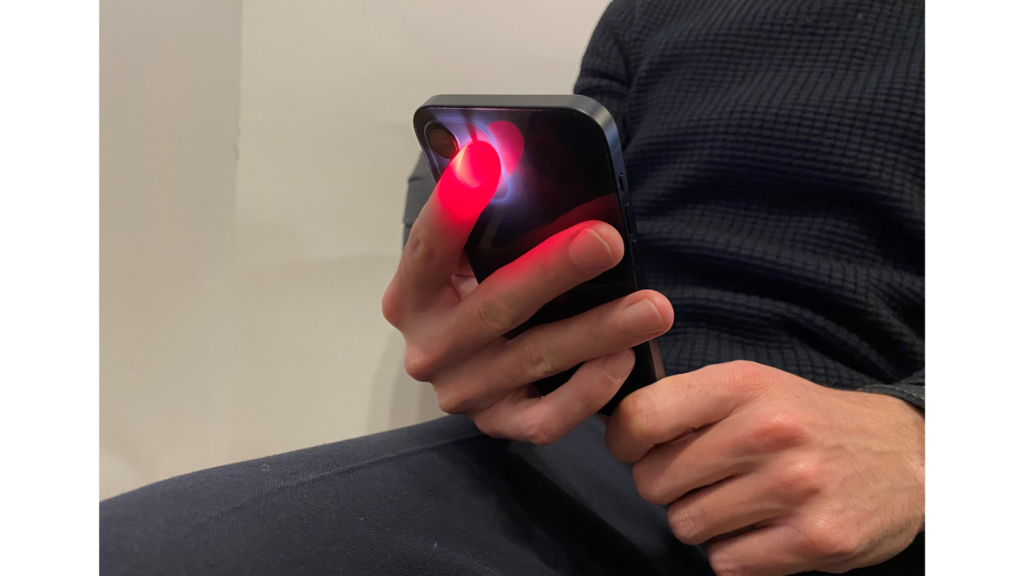Why health apps need better access to vital data
Judith Hillen
Whether it's mental health, cardiovascular disease or other chronic illnesses, effective digital health applications that address the individual needs of users need access to vital data. The Berlin-based startup KENKOU, which is part of 5-HT's network, has therefore developed a software development kit (SDK) that can be used to measure cardiovascular vital signs and thereby also the user's individual stress level. In an interview with 5-HT, Managing Director Matthias Puls, explains for which health applications it is worth integrating this SDK and how KENKOU intends to use it to contribute to better prevention of stress and cardiovascular diseases.
 Matthias Puls, Managing Director of KENKOU
Matthias Puls, Managing Director of KENKOUWhy is stress such a big health problem?
Stress is the new widespread disease. This is particularly problematic because stress is considered a gateway to serious cardiovascular disease and many other illnesses. Ultimately, stress is nothing more than a burden on the body and the psyche. When this stress becomes chronic, the body responds with chronic inflammation, which in turn can lead to chronic disease. Cardiovascular diseases in particular, which can arise in this process, are a major health problem - not only because they are the biggest driver of death worldwide, but also because the costs for the healthcare system rise sharply as the disease progresses.
If we do a better job of preventing stress, thereby preventing serious cardiovascular disease, we can save many lives while also taking the pressure off the health care system.
Against this background, it is understandable that both employers and health insurers have a great interest in countering stress in a preventive manner.
What does it take for better stress prevention?
Because prevention normally costs a lot of time and money, digital medical products can help keep costs in check. However, we cannot achieve better stress prevention with a one-size-fits-all solution, but only with individualized offers, because a good digital solution must be able to recognize the needs of the user and individually adapt the proposed interventions. In addition, anti-stress solutions are only reimbursable if a positive care effect can be proven. To date, however, many digital solutions lack access to relevant vital data of the users. At KENKOU, we are convinced that developers of digital health applications need a simple and low-threshold way to collect this vital data and thus make their solutions more effective.
How does KENKOU make stress measurable?
After founding KENKOU in 2014, we initially developed a wearable that measures physical stress using an ECG. Soon after, however, we decided to make stress measurable with software instead. The great advantage of this is that we don't need any special wearables - the user simply places his finger on the smartphone camera for one minute, via which we measure the pulse wave with ECG accuracy. Among other things, we analyze the scientifically recognized stress biomarker heart rate variability (HRV), which can be used to read the regularity of the heartbeat and thus the body's ability to relax. Based on this, we launched our Stress Guide app at the end of 2019, a B2B2C solution for stress and burnout prevention, through which users can measure their individual stress levels and then participate in meditations and mindfulness exercises. This app, which is certified as a medical device, is still available for health insurance companies or employers. In the meantime, however, we are focusing on making our technology generally available as a software development kit. Because when the first startups approached us last year and asked if they could integrate our measurement methods into their digital health apps, we realized that the best way to drive stress prevention forward is not to focus on our own app, but to bring our software into many different health apps.
 The smartphone camera measures vital data of the user
The smartphone camera measures vital data of the userFor which healthcare applications is it worth integrating your SDK?
In principle, our measurement of individual stress levels is relevant for all health, fitness and wellness solutions - for example, in mental health, chronic pain and chronic diseases such as cardiovascular disease. The benefits for our customers are clear: we enable them to develop holistic products by capturing cardiovascular vital signs data, thereby creating evidence, reimbursability and ultimately real added value for the users of their apps. The heart rate variability captured by our solution can also make the respective success transparent for each therapy. This is also very exciting for solutions beyond mental health.
What are the next goals for KENKOU?
Above all, we want to attract new exciting customers who would like to integrate our SDK into their applications. In the process, we would also like to learn more about what additional features our customers could benefit from. In the future, for example, we could also record atrial fibrillation, blood oxygen saturation and other cardiovascular vital signs via the smartphone camera.
In this way, we ultimately want to make a contribution to the prevention of cardiovascular disease - as early and as low-threshold as possible, so that everyone gets a feel for how their own body is doing and takes care of their health before it is too late.
How can the 5-HT network support you as you move forward?
We look forward to exchanging ideas with other players in the healthcare sector - especially with companies for whom our SDK is of interest and with whom we can set up joint projects. We are also very happy to talk to potential strategic investors, for example pharmaceutical groups or reinsurers, for whom it might make sense to take a stake in us.
How do you see the future of digital health apps?
I assume that modular structures will play a greater role in the development of health apps in the future: There will be significantly more SDKs, because after all, not everything has to be reinvented and developed over and over again. In many cases, the task of app developers will only be to link these different modules together in a meaningful framework. I also believe that the future lies in platforms that enable a holistic view of the body.
At the end of the day, users don't want a hundred different health apps on their smartphones, but rather a solution that integrates as much data and applications as possible, so that in the end an entire ecosystem is represented in one platform.
5-HT Chemistry & Health Newsletter
Want the latest tech and industry news, events, relevant info from the ecosystem and more?
Subscribe to 5-HT Newsletter now Subscribe to 5-HT Newsletter now
Become part of the 5-HT Chemistry & Health
Exchange ideas with innovative startups and future-oriented companies in our ecosystem. We look forward to meeting you!